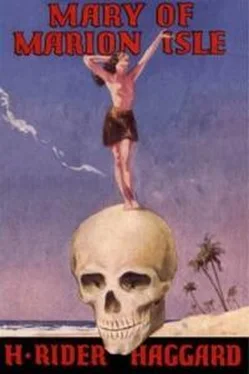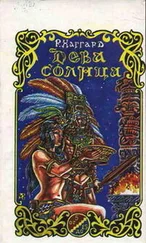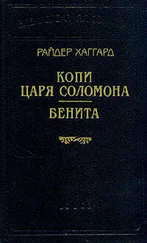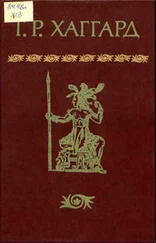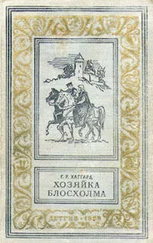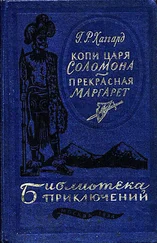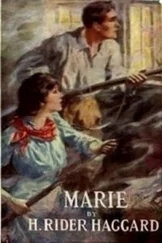When, by comparison, Andrew was quite strong again, of a sudden Mary, who had been somewhat silent for several days, spoke to him thus:
"Andrew quite well now, so Mary go back to cave. What Andrew wish to do? Stay here or come back live cave? Mary must go," she added by way of explanation, "see after oats and everything."
Andrew looked about him despairingly, his heart fluttering in his breast. Then he looked at Mary's great steady eyes.
"I don't know what to answer," he said. "If I leave you harm might come to you."
"That not matter," interrupted Mary.
"Or harm might come to me living here alone," he went on.
"Yes, you not very strong yet; silly also, take no thought for morrow like child, and not able look after yourself. That matter much," and again she waited.
"See here, Mary," he said in desperation, "I can't explain things to you, but it is impossible that we should go on living together as we have done, so near and yet so far from each other. It is not good for you, or for me either. That is," he added, dropping his eyes, "if I am right in supposing that you care about me."
"Care about you?" replied Mary. "Not know what 'care–about' means. Is 'care–about' other word for love?"
He nodded.
"Then," she continued quite quietly, "Mary 'care–about' very much. Let her see how much!" She looked around her and went on, "There sea all made up drops of water, and there shore, all made up little grains sand, and there sky all full stars. Well, Andrew count them every one, and then he learn how many 'care–abouts' Mary have for Andrew."
"You dear!" he muttered to himself, "what have I done to earn this?" and perhaps she heard him, for she coloured a little.
"If only you understood," he added aloud.
"Mary great fool," she answered, "but think she understand something. No one tell her, so perhaps God teach her. Something like this. Perhaps Andrew married, if wife not drowned. First part of Bible say man may have many wives as he like, second part seem say he may only have one unless he quite sure other drowned. So if Andrew come back caves and Mary his wife, he think that sin and God angry with him."
"I am thinking more of you than of myself," blurted out Andrew. "If I am still married and we ever went off this island, you would be despised; people would not speak to you."
"Mary understand, but why go off island? Island very nice place, plenty to eat, quite happy here. Oh! she see, perhaps Andrew want to. Andrew what called rich peer."
"No, I don't," he answered, "but all sorts of things might happen. You remember that albatross and the tin plate?"
"Yes, and he not come back yet."
Then there was silence between them for a while, which she broke at length, saying:
"Think Mary better go away now, want reach cave before dark. P'raps if Andrew let her she come see him sometimes, once every moon, or p'raps better not. Mary bring him things and put them on stone," and as she spoke her big eyes filled with tears.
"Stop," said Andrew hoarsely, "I want to tell you something. I love you with as much love as there is water in the sea and sand on the shore and light in the sky," he went on, adopting her similes.
"Then Mary very happy, who only hope for quite a little."
"Loving you so much," he continued, "I who am but a man, cannot go on living with you as we have done. It is weak and wrong of me, but I cannot do it."
"Mary weak and wrong too, both sick together."
"Therefore, Mary, either we must stop apart, which seems unnatural and also wrong, or we must go back to the caves—together."
"Yes, that what we talk about all this time."
"Mary," he went on wildly, "I cannot leave you."
"No leave me, only stop here. I leave, and quick before I cry. Only want say this. If Andrew come and get tired of Mary, or want to go away in ship or something, she never say No. Mary not wish to be trouble, she only Andrew's here, and always easy die."
That was the end, he could bear no more. That day they went back to the caves together, he leaning on her strong arm.
Then began the happy, happy life of these poor sinners, if such they were. There in their caves they lived together, a perfectly mated pair in body and mind and spirit. They rose with the sun and carried through their daily toil, laughing the hours away, and when the sun sank they went back to their cave and slept thankful and rejoicing until he came again.
The summer passed, the winter returned, but for them it had no terrors who were both strong and healthy. Spring drew on once more, and with the spring came Mary's child.
Andrew had been much perturbed about the arrival of this in fact, which must take place in the absence of the ordinary conveniences, although as a doctor, of course, he knew all that should be done. He was an anxious–minded man, especially where those he loved were concerned, and carefully enough he thought out every contingency and made preparation for every danger, so far as the means at his disposal allowed. As it turned out he might have spared himself the trouble. Mary went on doing her work just as usual to the very day of the occurrence, which caused him to think that the date had been miscalculated. So it happened that he departed on some daily round, it was connected with skinning a seal that lay dead at a distance, and returned to find that there was no supper cooked. While he was wondering over the cause of this omission, he heard Mary calling him from the cave. Entering he found her lying on her bed, looking a little pale, but smiling. Presently she threw back the skin rug and showed him a babe, a most beautiful and perfect girl.
"Janet come back," she said. "I always tell you Janet come back!"
In a week she was perfectly well again and wished to get up, even showing temper when he would not allow her to do so. In fact, to her who from childhood had led a primitive and natural life, this business was nothing, as it is nothing to a savage woman. Nor was there any trouble about the child or any necessity of supplementing its natural food. The mother bloomed and grew even more beautiful than before, and the child was strong and healthy as a young seal. Also he observed with a kind of wonder that daily it became more like his lost Janet.
So now there were three at the caves instead of two, and that was all the difference. Mary did her work as before, only with her babe, which by her wish Andrew had christened Janet, slung in a skin upon her back, as an Esquimaux woman does, the sole change being that Andrew must swim out and attend to the nets, which she declared he did very badly.
So the time went on. Janet was a strong and forward child who soon found her sturdy little feet; indeed, at a year old she could toddle about, gurgling in a jolly fashion, and a few months later could say "Dad and Mum" and other words. Ailments she had absolutely none, since there were no germs to infect her, and she cut her teeth with ease.
So, as has been said, they were absolutely happy, or would have been were it not for the fact that there are always flies in every human pot of ointment, and theirs was no exception, since in it buzzed and struggled two veritable bluebottles. The larger of these, which particularly affected Andrew's side of the pot, was a moral insect. In his way he was a strict sort of man who might do wrong, but whose conscience always called upon him to pay the price full measure, pressed down and running over. Now that conscience told him that his conduct in the matter of Mary was of a questionable order. He knew that if he had acted in any other way, not only would it have been contrary to the earnest desires and most natural impulses of both of them, but that the issue in all probability would have been their deaths, since it was scarcely possible, fretting as they would have done, that they could have continued to live solitary and separated on that narrow island. Accidents would have happened, and one of them would have given up the struggle, and then, broken–hearted, the other would have followed. Still, there was the strict letter of the law, the potent law which had been inculcated in him since childhood, which says that a man may not marry again unless he is absolutely sure that his wife is dead. And of this Andrew was by no means sure. Simply he could not tell, nor indeed did he wish her to be dead. Only if she were alive, what then was his position and that of Mary; also that of their beloved child?
Читать дальше
Конец ознакомительного отрывка
Купить книгу
